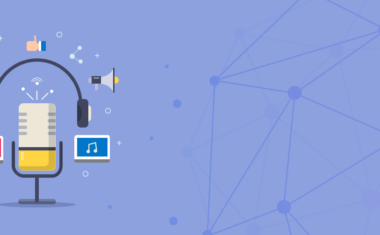Software engineers possess a strong foundation in programming, algorithm design, and problem-solving that gives them the potential to transition smoothly into a data science role. While pivoting your career is a huge decision, data science can be a promising new avenue to explore for analytical and detail-oriented software engineers. Trillions of gigabytes of data daily flow through corporate hands every day, and data scientists are needed to interpret it.
When it comes to making the leap, you may have some pressing questions about how to do it and what it may mean for your career. Questions like: How do software engineering and data science intersect? What are some skills that I have that will carry over? What will I need to learn to pivot from software engineering to data science?
If you’re asking yourself these questions, then you’re in the right place. Below, we’ll tell you everything you need to know about making the career pivot from software engineering to data science.
Is It Easy for a Software Engineer To Transition Into a Data Scientist Role?
Yes and no. Software engineers can translate some of their overlapping knowledge in programming languages and development structures to data science. While data science is not hard to learn, it uses industry-specific software, some with steep learning curves.
How Similar Are Software Engineering and Data Science?
Software engineering and data science are quite different in their scope of work, but the skills and tools in each can translate to the other. Software engineers utilize both front-end and back-end programming languages to construct a website or an app. A data scientist, on the other hand, obtains, cleans, explores, models, and interprets big data that may be used by a corporation to make an informed decision. You can expect to use languages like Python and JavaScript as well as tools like GIT/GitHub in both. The biggest differences are the ways they approach and solve problems.
How To Make a Career Transition From a Software Engineer to a Data Scientist
A career pivot can be daunting, so this step-by-step guide will make a clear path from software engineering to data science. Here are the steps to take:
-
Ensure It’s the Right Move for You and Make a Plan
-
Learn the Foundational Concepts
-
Invest in Learning and Training
-
Build and Hone the Essential Skills
-
Familiarize Yourself With the Requisite Tools
-
Gain Relevant Hands-On Experience
-
Create a Strong Data Science Portfolio
-
Find a Mentor
-
Work Toward the Job You Want
Ensure It’s the Right Move for You and Make a Plan
Before you dive into a career change, it’s a good idea to have insights from those who have experience in the field. Communities and forums such as Reddit are great for this. A community can be a great tool to ask questions that need a nuanced answer. You might even be able to get insight from someone that has made the transition from software engineering to data science.
After doing some research, make a plan to enter the field that takes your lifestyle and goals into consideration. To create a plan, you may need to unpack what your personal goals are. You can start by asking yourself, with community support, questions like, “Do I have a specific niche, industry, or company in mind?”
Understand What You Need To Learn
See what a data scientist does to find specifics of what you need to learn. Then, make a list of what you already know and what skills you’ll need to pick up. Though transferable skills will give you a leg up, there’s industry-specific knowledge that you’ll need to master too. Many data science skills aren’t used in software engineering because of their technical differences.
Give Yourself a Realistic Timeline
Career pivoting takes time, so it’s important to be gentle and patient with yourself. You’re learning some completely new skills, some that, even with parallel knowledge, can take time to master. This transition will only happen with consistent effort over time. The timeline that you give yourself will also determine your course of study.
Learn the Foundational Concepts
When learning the fundamentals, a good place to start is with the data science process. These steps range from being broad, like compiling data, to specific, like using certain modeling software. These workflows are the backbone of data science and will be necessary to understand.
Other foundational knowledge includes concepts from data analytics, machine learning, computer science, and artificial intelligence. Being familiar with each of these will set you up for success.
Invest in Learning and Training
Data science learning and training vary in price and time to complete. While you can’t major in data science at the undergraduate level, a degree in computer science teaches important foundations. Some job postings prefer a Master’s or Ph.D. in related fields, meaning that many learning data science already have degrees. Despite an employer’s preference, though, having a degree isn’t mandatory to enter the field, as a strong portfolio can bridge the gap.
Here are a few ways to make the leap:
Bootcamps
A data science bootcamp requires an upfront investment, but is also the quickest and most structured way into the field. Oftentimes they’ll include a job guarantee upon completion.
Online Courses
Online data science courses differ from bootcamps in that they tend to be entirely online and asynchronous. Courses offer subtopics that you can study at your own pace to fill in gaps or niches down. You can find some free self-paced courses, but you probably won’t be assigned to a mentor. They are a great way of getting a general grasp of the field before committing to a paid resource or as a means to specialize in a data science topic.
Certifications
Certifications tend to cover more specific topics than you’ll find in a bootcamp, and demonstrate your abilities to employers. Harvard, MIT, and, CodeCademy all have popular certification courses.
Blogs, Websites, and Books
Literature is always a friend when learning a new skill. Pick up a data science book, read a published data science blog, or glean some insights from a trusted Substack newsletter.
Build and Hone the Essential Skills
When transitioning to data science from software engineering, it’s essential to consider which skills will transfer, and which ones you’ll need to learn.
Transferable Skills From a Software Engineer Role
There are numerous software engineering skills that are transferable to data science. Here are several that will be an asset:
- Programming languages like Python, JavaScript, R, C/C++, SQL
- Libraries and frameworks
- Git/Github
- Workflow comfort
- Supporting large teams
- Operating around tight deadlines
- Data structures and algorithms
Other Essential Technical Skills
If you’re transitioning from software engineering to data science, then it’s likely that you’ll need to learn the following skills:
- Data science software programs such as Hadoop/Apache Spark, NoSQL, D3.js
- Machine learning methods
- Data modeling and analytics
- Data visualization
Other Essential Soft Skills
Some soft skills for data science include:
- Critical Thinking
- Strong Teamwork
- Business Knowledge
- Analytical Thinking
Familiarize Yourself With the Requisite Tools
Data scientists use different tools at each stage of the data science process. Some of these requisite tools will be familiar to you if you have a background in software engineering, including Hadoop/Apache Spark, NoSQL, D3.js, and others. Other data science tools include:
- Python
- R
- Jupyter Notebooks
- RStudio
- Matplotlib
- Ggplot2
- Pandas
- Dplyr
- Scikit-learn
- TensorFlow
- Keras
Gain Relevant Hands-On Experience
Here are a few ways to get some experience in data science before you start applying for data scientist roles:
Work on Open-Source Projects
Open source projects are a great tool, showing progress others have made as well as new ways to handle data. You can find open-source projects on GitHub, Kaggle, and KDnuggets.
Pursue Volunteer Work
Volunteer work provides a safe and low-pressure space to make mistakes. It may be difficult to find, but it can provide a space to iterate with a meaningful cause.
Consider an Internship
Internships are a great way to get a foot into the industry while making connections with potential employers, and you’ll often have mentors or supervisors guiding you through a project. Look at companies that you find exciting and apply. You can find both paid and unpaid internships.
Create a Strong Data Science Portfolio
A portfolio is one of the strongest aspects of your application package, as it displays actual projects you’ve worked on and the knowledge you’ve used to produce them.
Find a Mentor
A data science mentor can guide you through finding a career. In a bootcamp, this can look like an instructor. If you’re taking free courses, there are paid mentors that can offer guidance.
LinkedIn can be a space to connect with people that have been in data science for quite some time that might be willing to guide a young data scientist.
Work Toward the Job You Want
If you have a more specific title you want to work toward or a particular company you want to work for, then you can work backward from that goal. If you think of an ideal employer, you can keep them in mind as you construct your portfolio and take on projects. Even in data science, the scope of work can vary from company to company. Learn what an average day looks like at your ideal employer and seek to emulate that in your portfolio.
Get To Know Other Data Science Students
Lou Zhang
Data Scientist at MachineMetrics
Abby Morgan
Data Scientist at NPD Group
Rane Najera-Wynne
Data Steward/data Analyst at BRIDGE
How Much Can You Earn as a Data Scientist?
A data scientist’s salary can vary widely and is dependent on location, experience, and industry. For example, a data scientist at the entry-level can earn drastically more in New York City than in Orlando. A mid-level data scientist can plan on making even more with the added responsibilities, often managing a team and mentoring junior data scientists.
Software engineer salaries are dependent on similar factors, such as experience, industry, and location, with Silicon Valley offering some of the best compensation in the country.
Entry-Level
An entry-level data scientist, also called a junior data scientist, has a median income of $79,574, according to Payscale, with salaries that range from $60,000-$113,000.

Mid-Level
A mid-level data scientist has a median salary of $100,761, according to Payscale.

Senior-Level
Senior data scientists have a median income of $119,764, with salaries ranging from $87,000-$172,000, according to Payscale.

Resources for Finding Data Scientist Jobs
One of the hardest parts of a job is knowing exactly where to look. Here are a few suggestions to help you get started.
LinkedIn is a major tool for any professional since it helps you keep track of the people you meet on the job. It’s completely acceptable to connect with just about anyone you encounter, even if the extent of your interaction was a quick introduction or a handshake. This is how people develop their professional network and make sure they can get a hold of anyone they might need.
Job Boards
While there’s nothing wrong with using the classics like Glassdoor, Indeed, and Monster, there are also a good number of job boards aimed specifically at the tech industry. Here are a few:
Networking
Networking comes in a lot of forms, from attending conferences to participating in mentoring programs or keeping up with your alumni network. The key thing is to put yourself in places where you’ll meet other data scientists. Here are a few examples of activities that count as networking (you might be surprised by a few of them):
- Professional conferences and meetups
- Online communities
- Alumni networks
- Hackathons and competitions
- Collaborative projects
- Mentorship programs
- Academic and research networks
- Workshops and training programs
- Blogging and content creation
- Industry events
- Local community engagement
- Cold outreach
Slack Communities
Slack communities are one of the easiest ways for a new or in-training data scientist to start networking. You can do it right from your home, and you choose when to participate, so there’s no pressure to join in when the topic is too advanced. Here are a few examples:
FAQs About Transitioning From a Software Engineer to a Data Scientist
Here are some frequently asked questions when it comes to pivoting from software engineering to data science.
Is Becoming a Data Scientist a Good Career?
Yes, becoming a data scientist is a good career choice. You can easily make six figures, and the field has a high projected market growth in the next decade. If you’re passionate about telling a story with data that affects change, this could be the career for you.
Is Data Science a Stable Career Choice?
Yes, data science is a stable industry, with upward mobility in the workplace and an expanding market. According to the US Bureau of Labor, the projected job growth for a data scientist between 2021 and 2031 is a 36% increase.
Is It Better To Be a Software Engineer or a Data Scientist?
Determining if it is better to be a software engineer or data scientist depends on your skill set, interests, and career goals. A software engineer handles either frontend or full-stack web development, while a data scientist specializes in obtaining and communicating large pools of data.
Do Data Scientists Get Paid More Than Software Engineers?
Both a data scientist’s and software engineer’s pay varies widely depending on seniority and location. A junior data scientist could expect to make between $90,000-$145,000 per year, while a software engineer would make between $57,000-$128,000 in the US.
Since you’re here…Are you interested in this career track? Investigate with our free guide to what a data professional actually does. When you’re ready to build a CV that will make hiring managers melt, join our Data Science Bootcamp which will help you land a job or your tuition back!





